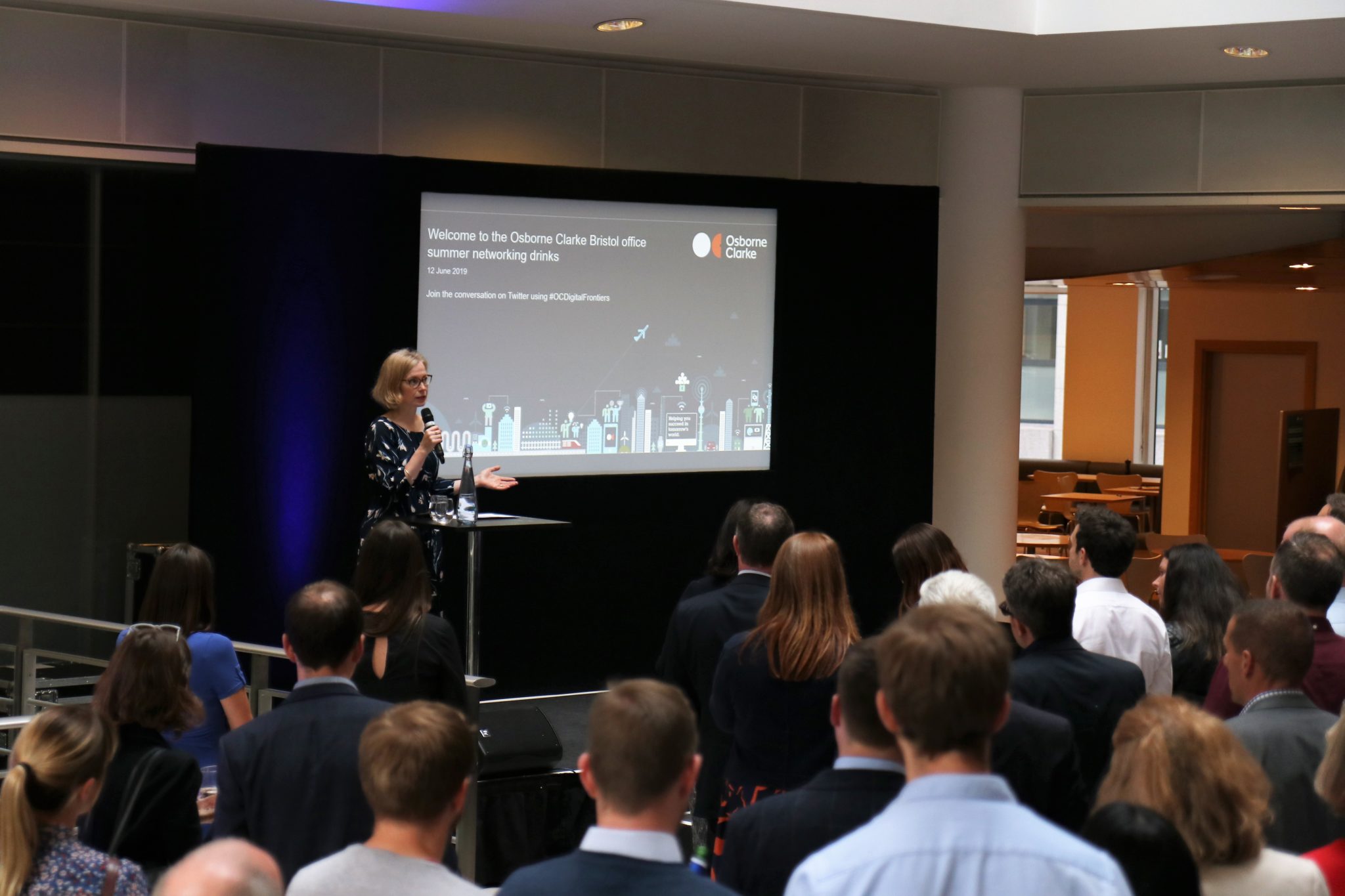Businesses won't be able to resist the tide of digital transformation that is sweeping the globe, according to speakers at a leading technology law firm.
Catherine Hammon, digital transformation knowledge lawyer at international legal practice Osborne Clarke, told an audience at the firm’s annual client event in Bristol that the “building blocks are in place” to ensure that the current rate of change is not only maintained, but increased.
“Digital transformation is coming to every sector because the building blocks are all in place,” she said.
"Computing power has increased hugely and we all carry round vast computing power just in our pockets. It has been calculated that if the speed of cars had increased at the same rate over my lifetime as the increase in computing power, we would now be driving around at 420 million mph.
“Using that power, it took Artificial Intelligence engineers just 19 minutes, at a cost of $7, to break the Enigma code used by the Germans in World War Two, the same code which took Alan Turing and others several years to crack at Bletchley Park. The project would have taken two weeks but the team hired 1000 servers for an hour. But even more extraordinary is that hiring that power cost them a mere $7". She emphasised that computing is now not only powerful but readily accessible and affordable.
“Likewise connectivity, another raw ingredient for digitalisation. There are currently around 27 billion digital connections in the world – that is 3.5 connected devices for every human on the planet. By 2025, that figure is set to rise to 75 billion. Most of those connections will be in the things all around us as our environments become dynamic and responsive. The opportunities are extraordinary.”
The significance of increased connectivity is also reflected in Osborne Clarke’s recent Next-Generation Connectivity report. The firm commissioned research from the Economist Intelligence Unit, who surveyed executives and managers from 11 countries and found that those in Germany and the Netherlands were the most advanced in their adoption of 5G and other forms of cutting-edge connectivity.
Inma Martinez, a pioneer in the AI and digital sectors and venture partner at Deep Science Ventures, was guest speaker at the event. She spoke about the rise of digitisation and how we are moving towards everything having a digital twin, a virtual replica of a product or process. She underlined the importance of data as a valuable asset to companies.
"Digitistisation is no longer a decision. Businesses need to turn their assets into something that can be analysed. There are always parts of a business where you have less idea what is going on – and that is the part you need to digitalise,” she said.
She also told the audience that fears humans would be supplanted by machines were misplaced. "Machines are very good at trying to be like us but they are not us," she said.
She pointed to the difficulties of trying to teach machines the full scope of human language. Despite being programmed to learn words, a machine cannot not replicate the core function of language as a means to build trust and rapport.
"Our language is about instinct, about establishing trust - it's not about grammar or the words we use", she said.
Throughout her speech, Inma reinforced that AI's transformative power is a force for good. She told the audience in the future more tedious jobs would be done by AI leaving humans free to be creative and to problem-solve.
“Our brains were not meant to compute all of this data, which is where the machines come in. We are moving towards a world of emotional intelligence (EQ) because the machines are performing the IQ part."
She explained that we need to accept that humans and machines are good at performing different tasks. She argued what set humans apart from machines was our curiosity.
"Curiosity is the seed of our creativity. Every human is born with it. Curiosity allows us to create innovation because we want to do things even better."
She highlighted recent examples of business innovation, where creative thinking had solved a problem rather than computation.
"The digital future is about finding your attributes. The richness of the human brain is only now just being discovered. It has an incredible capacity for abstract and creative thinking, and this is something that will continue to be done by us.," she said.
Pictured below: Inma and Catherine at the event.




